This year the UN CSW was set with the title “Social protection systems, access to public services and sustainable infrastructure for gender equality and the empowerment of women and girls”
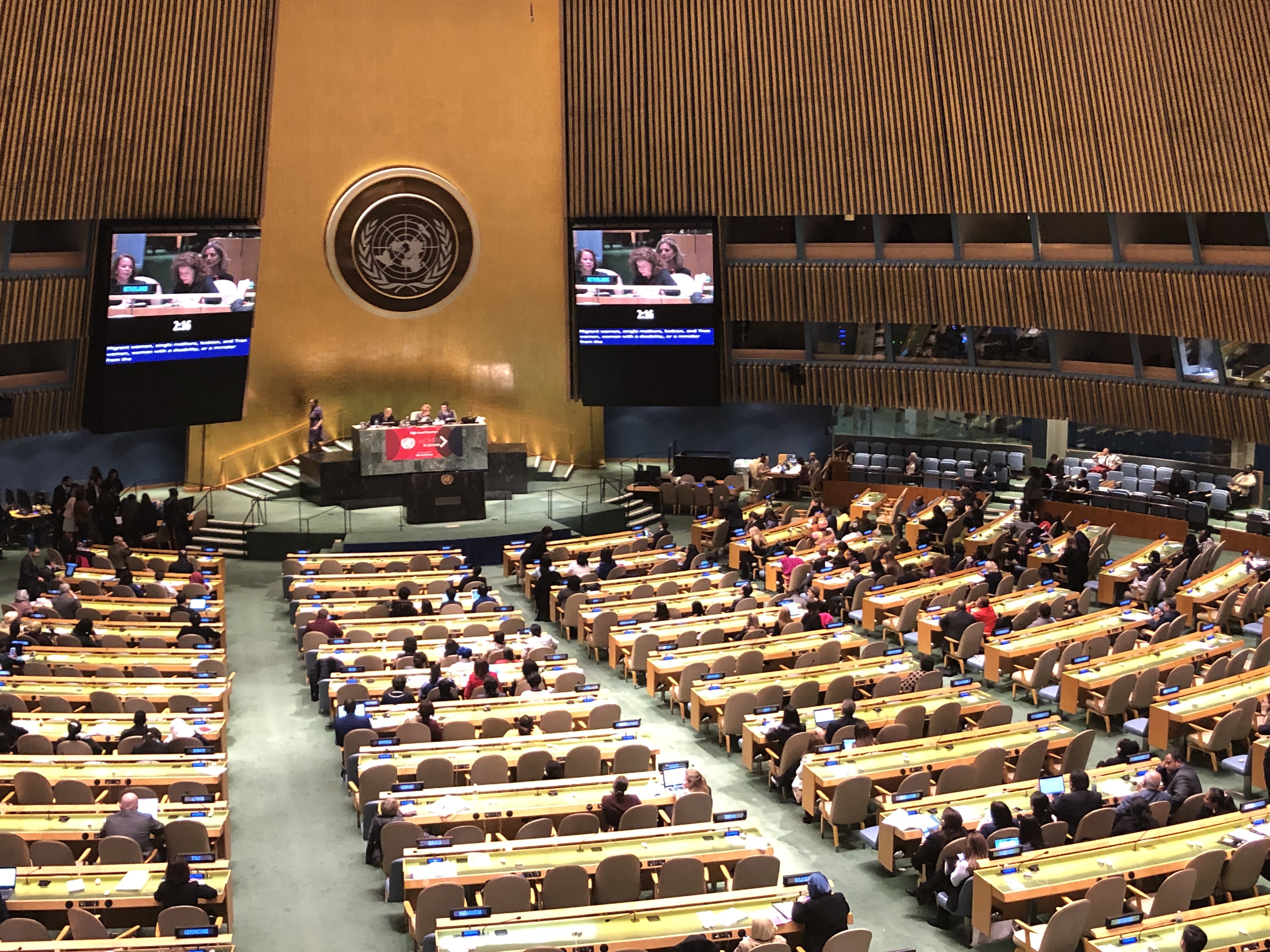
Several members of our INLW board were present. Our new president Jayanthi Balaguri, Margaret de Vos, Lysbeth van Valkenburg, Khadija El Morabit, Maysing Yang and Ruth Richardson were present during the opening ceremony, as well as Joaquima Alemany. Many persons from African and Asian countries were again not able to get visa’s to enter USA, like Awa Gueye our newly co-opted Vice President from Senagal for Sub Sahara Africa who had worked hard to get a big INLW delegation from Senegal and Mali to visit the CSW, but she herself received her visum just after the end of CSW! You wonder if the UN should stay in New York if people from around the world are not able to visit the UN because of US visum problems! We were able to welcome some new members though during CSW.
The opening started with a moment of silence for the lives lost in the tragic plane crash in Ethiopia.
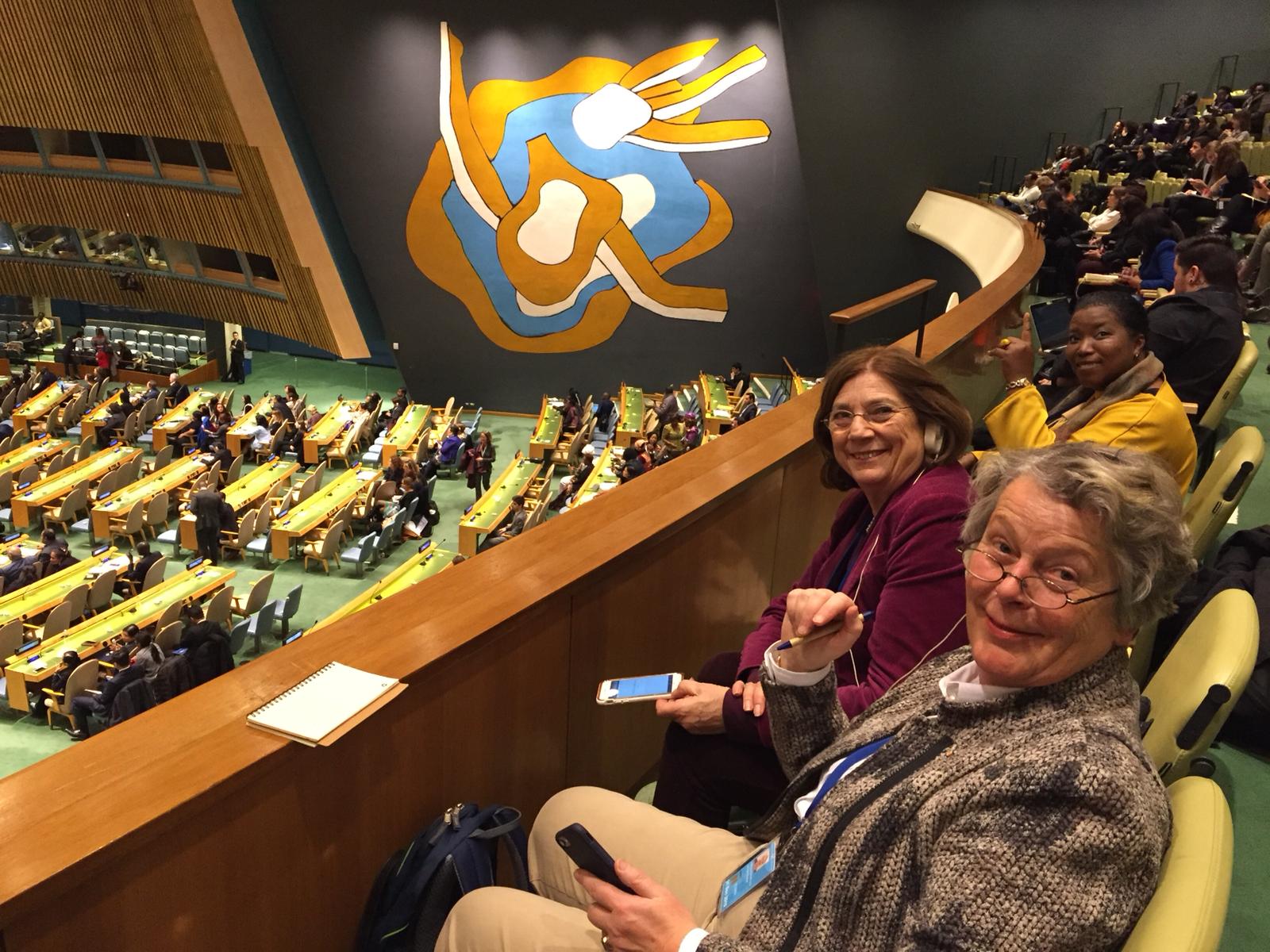
Ambassador Geraldine Byrne Nason (from Ireland) CSW63 Chair, gave us some good statements on the theme. “Changing laws goes hand in hand with changing gender norms, we are all responsible for women’s empowerment, and all responsible for making our societies more equal: to create positive change and share policies.
Increasing the financial capability of girls as well as awareness of their rights, helps them take advantage of economic opportunities. Over 100k girls will receive financial educations through life skills programs.
Women are leading the way in efforts to build resilience and adapt to the impact of climate change. They pick up the pieces when families are forcibly displaced or struggle to recover from conflict”.
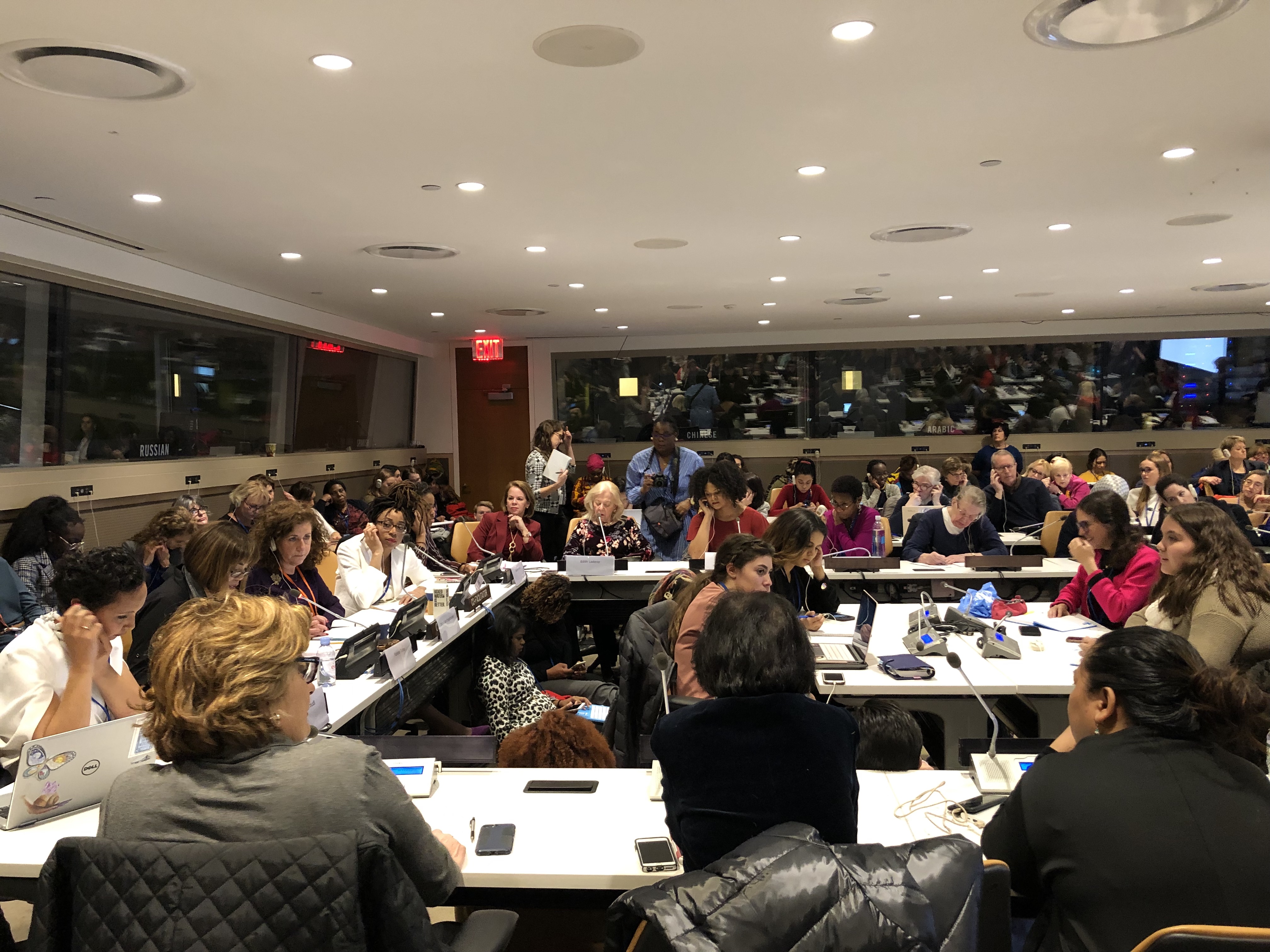
“Without a good basic structure woman won’t get any good position and rights. Laws, education, health and transport are important. In India we can see the result with more education there are more women in higher positions”. As Mrs. Nason stated in her opening of the 63rd CSW.
After the general opening all the various workshops and parallel events started.
The Monday morning session organised by Liberal International and INLW took place even before the official opening and had the title:
“Gov Ids My number, So Track Me Maybe?”,
do technology-based systems prevent long-term risk to democratic integrity? Discussion on the social protection implications of introducing digital IDS for the empowerment of women.
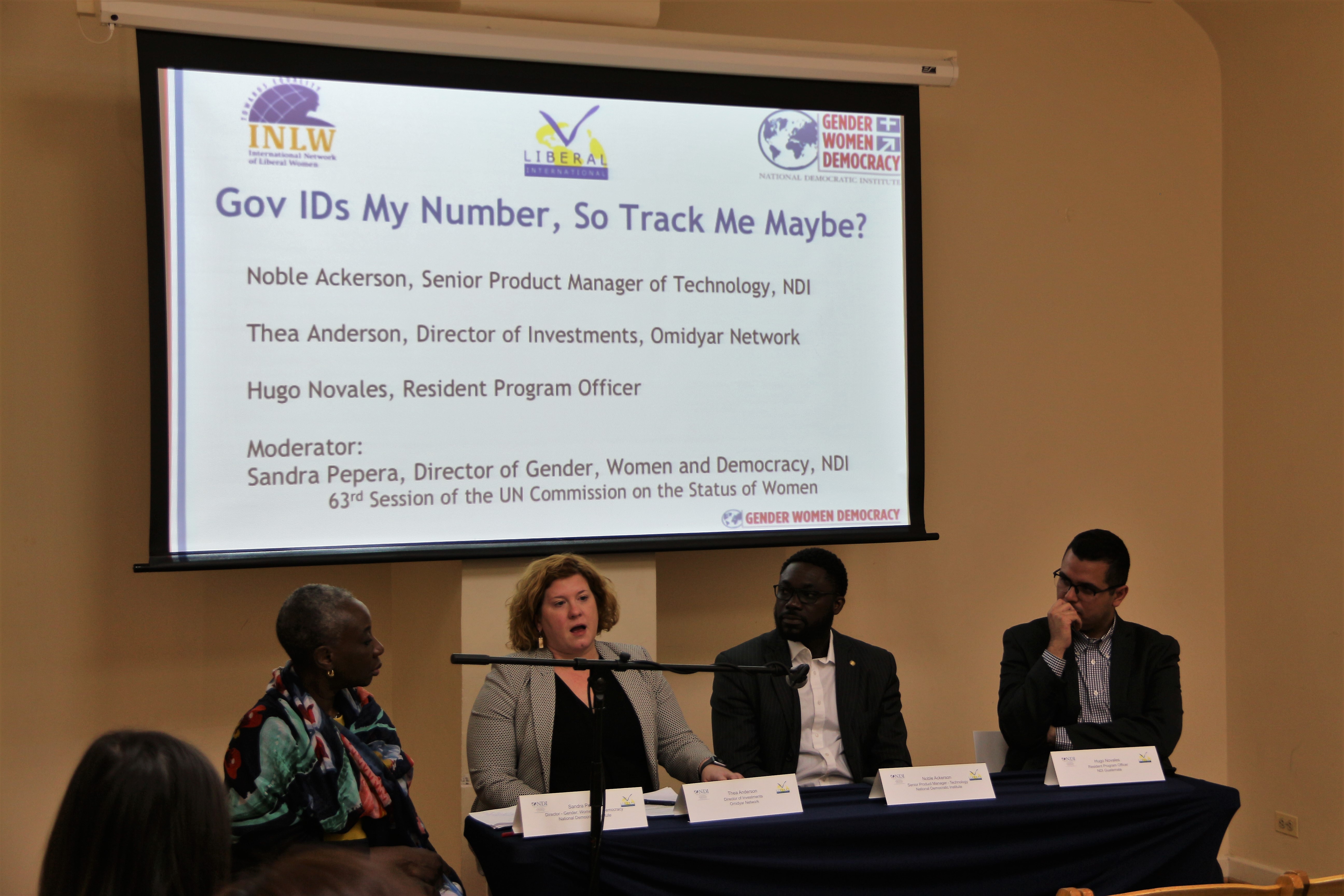
Sandra Pepera, director for Gender, Women and Democracy, NDI, was moderator during the session. Participants: Noble Ackerson, senior product manager, Technology, Thea Anderson, director , Omidyar Network and Hugo Novales, regional Program officer, NDI. They gave their different views on technological development for women and girls.
Digitization can do a lot for mankind as was concluded. Before we all became digital over a billion people had no access to a passport or ID. The poorer they were the more rare the opportunities of getting any ID. If you are without an ID how can you get money or a house for instance. It also implies that you are unable to get security or health care. At the moment 55% of the world population has no digital ID.
This is one of the most important issues for any government to organize as soon as possible.75% of our health care is linked to our ID, 11% has direct digital voting capacity. Digital ID gives efficiency but also many possibilities.
In Pakistan in 2009 14 million women had a digital ID to health care, at the elections 11 million were absent during the voting for parliament. Possibly because they were afraid to vote.
75% of our health care is linked to our ID, 11% has direct digital voting capacity. Digital ID gives efficiency but also many possibilities.
In Pakistan in 2009 14 million women had a digital ID to health care, at the elections 11 million were absent during the voting for parliament. Possibly because they were afraid to vote.
Thea Anderson concludes that it is quite a step to a digital world which also has to include privacy, choice and security. At the moment 148 countries are working with a digital system.
Noble Ackerson, from analogy to digital gives control, privacy and security as advantages. But governements often want to know a lot of data and are not prepared to give people insight in all they know. So we all have to be alert what we want to share, make our own choice.
Hugo Novales, with an ID you can show that you exist. It is not how to use data but also what is a government doing with the data when digitizing. Also who is the owner of the data? Where are our data stored?
Why do we want an ID? It is linked to social payment, so it is useful for our finances and important for education, but for any digital use you need electricity.
Regulation of data is important, there is a enormous amount of big data today.
In some countries, If you want to vote you have to register:
2007 43 million women went to vote
2011 50.9 women went to vote
2015 53 women went to vote because they were able to register because they possessed an ID.
In many countries banks are owned by the government so one must be alert to share ones ID and protect ones privacy, one must train people on all the risks.
Laws must be made to make it safer: data protection laws. Special laws have to be made for Google. Before you are using data, you always have to ask the owner. Digitalisation is a tool, but governments must be trustworthy. How long to retain information and at what cost. We must be careful and know what we are doing with our ID and data!
The panel gave us an interesting insight of all challenges and risks that are part of this new digital world.
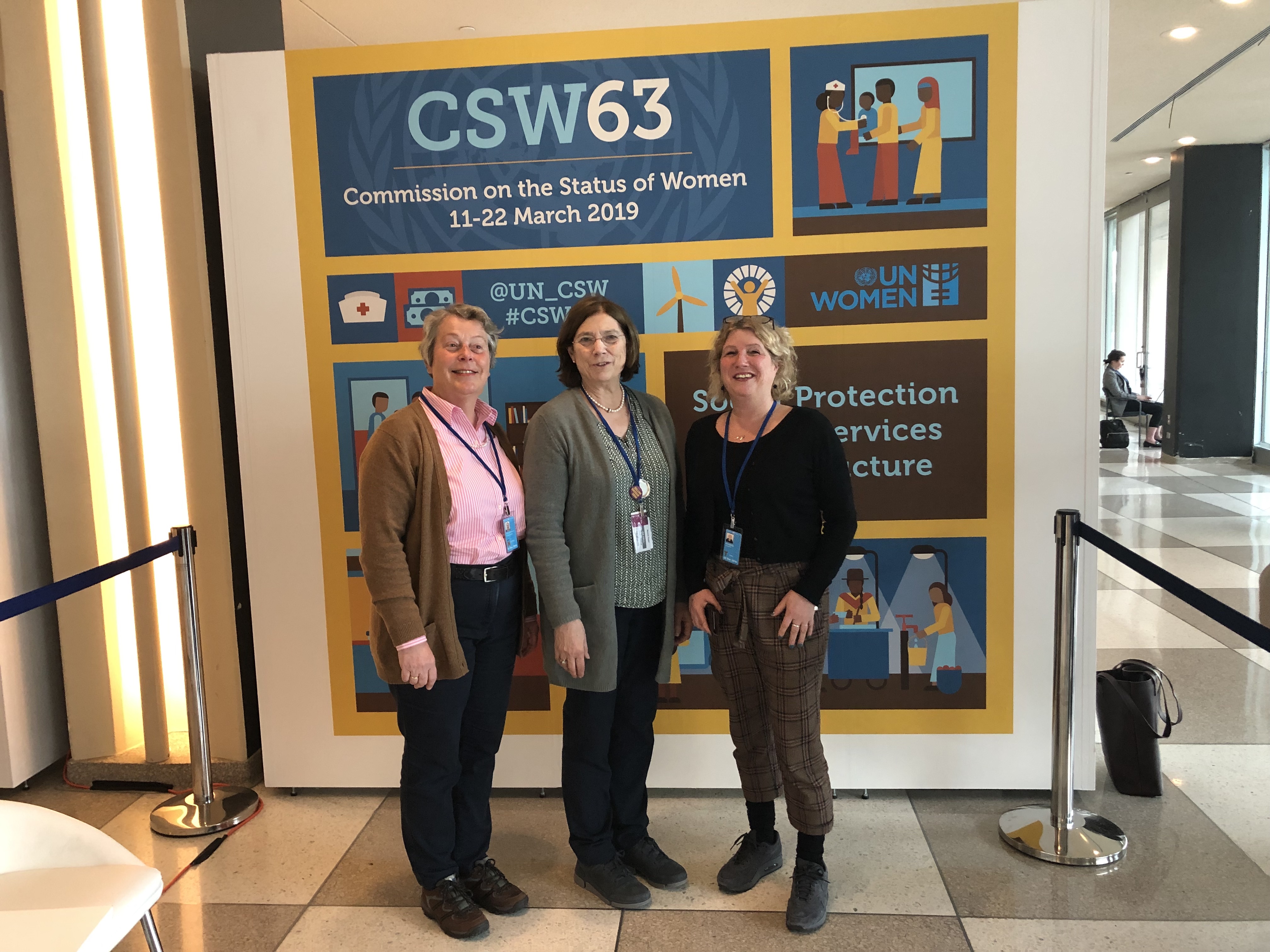
Another interesting panel discussion was about “Women in Media”.
Media informs, influences and shapes the world we live in. Journalism exists to serve the public and represent society. But unfortunately, women and minorities remain largely underrepresented. Both in front of the camera as well as in positions of power.
We see that in most media the men are the experts that are asked to give information.
Women have to make connections to form a network and thus become more involved. To show themselves on tv and other media.
But also in governments some countries show very few women in the decision making positions.
The start is in education; schoolbooks have to be updated with more examples of women in photo’s showing them at work and showing their achievements.
Women have to protest to committees or penal judges where there are only men holding the seats. They have to speak out to get more diversity.
We need more men to help us to get this done. Many choices are made by white men, they need convincing that any committee needs diversity to deliver good work.
In some parts of the world, safety is also a cause for women not to participate in official positions.
In the new digital world girls and women are facing harassment, so also in this medium safe spaces on-line are important.
Many choices for positions in government or other important places are made by people who tend to choose persons who resemble themselves and thus limiting possibilities for more diversity.
One speaker, a reporter working for one of the international bureau’s, was the first woman reporter sent to war zones in 1972. As she did this very well she was sent to other war areas such as Afghanistan, Northern-Ireland, Ruwanda, Bosnia and Israel. Her career is an example for the progress that has been made. But in media and boardrooms men are still uppermost present: there is a world to win for girls to make their mark in these positions.
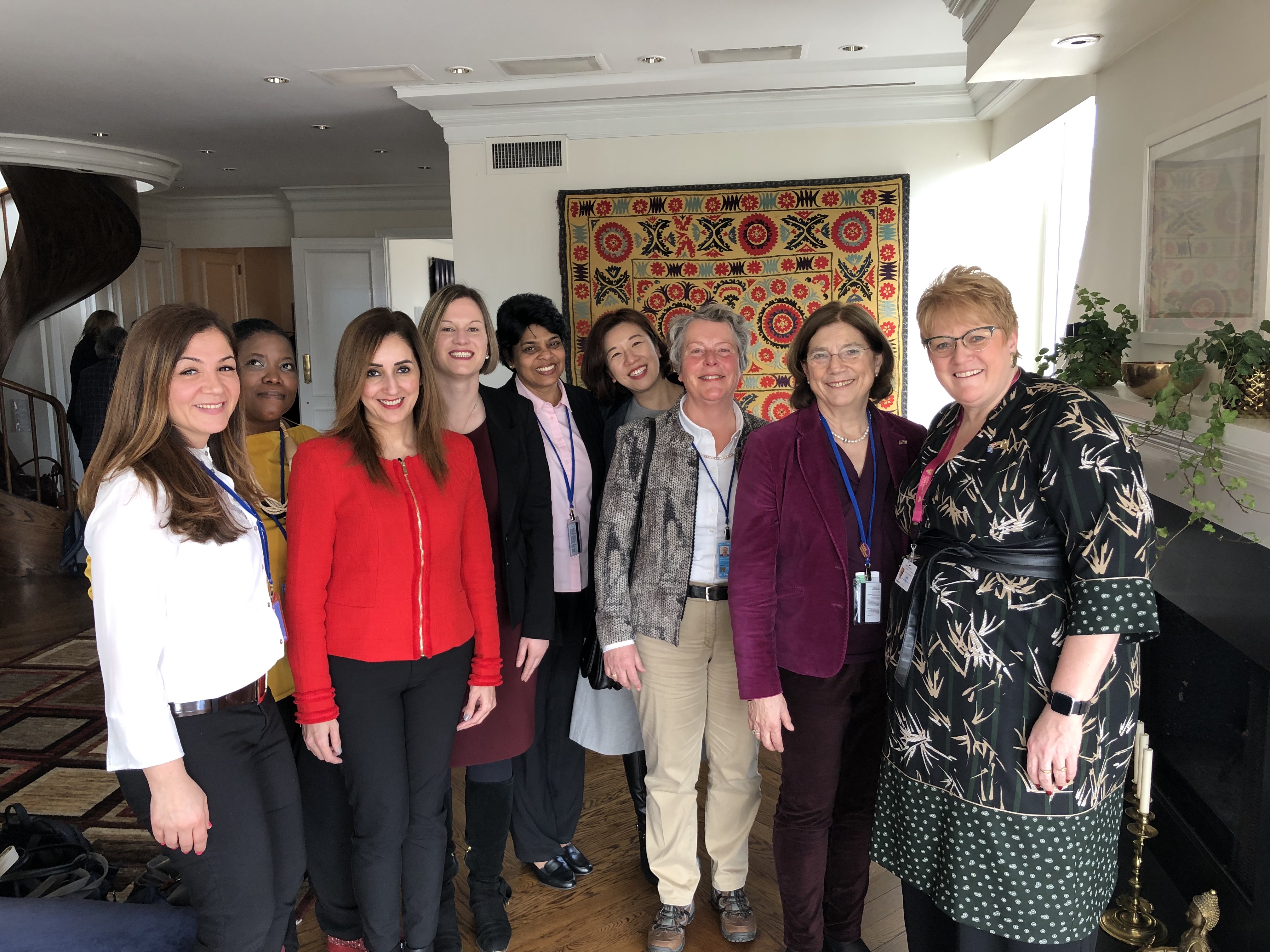
During the first week we also paid a visit to Minister Trine Skei Grande, Minister of Culture & Gender equality, Venstre Norway. She told us about the progress that has been made for the position of women in Norway. Wealth is especially increased because women are working.
In the political parties there are 4 women party leaders.
Maysing Yang told us about the difficulties in Taiwan, the law has to be changed first for women to get more possibilities such as ownership of their own business.
Khadija el Morabit could tell us that in Morocco on paper things are equal but in reality there are many problems for women and girls to get into important positions.
Jayanthi Balaguru, president of INLW, gave as a view about the problem in her country Malaysia where the enormous difference of culture and religion makes it difficult to reach any equality. But with support from all over the world the balance will be reached.
Minister Skei Grande told us that in Norway women’s rights were an issue but it is improving. The best way to get result is in education, but also health issues such as safe abortion are vital for progress.
At the moment there is a discussion about maternity leave. The government wants to divide it between men and women, so 1/3 for the women, 1/3 for the man and 1/3 they can devide themselves.
This gave huge problems with the women who are not really
prepared to share or give such a privilige to the man. So even in Norway there
is still a world to win.
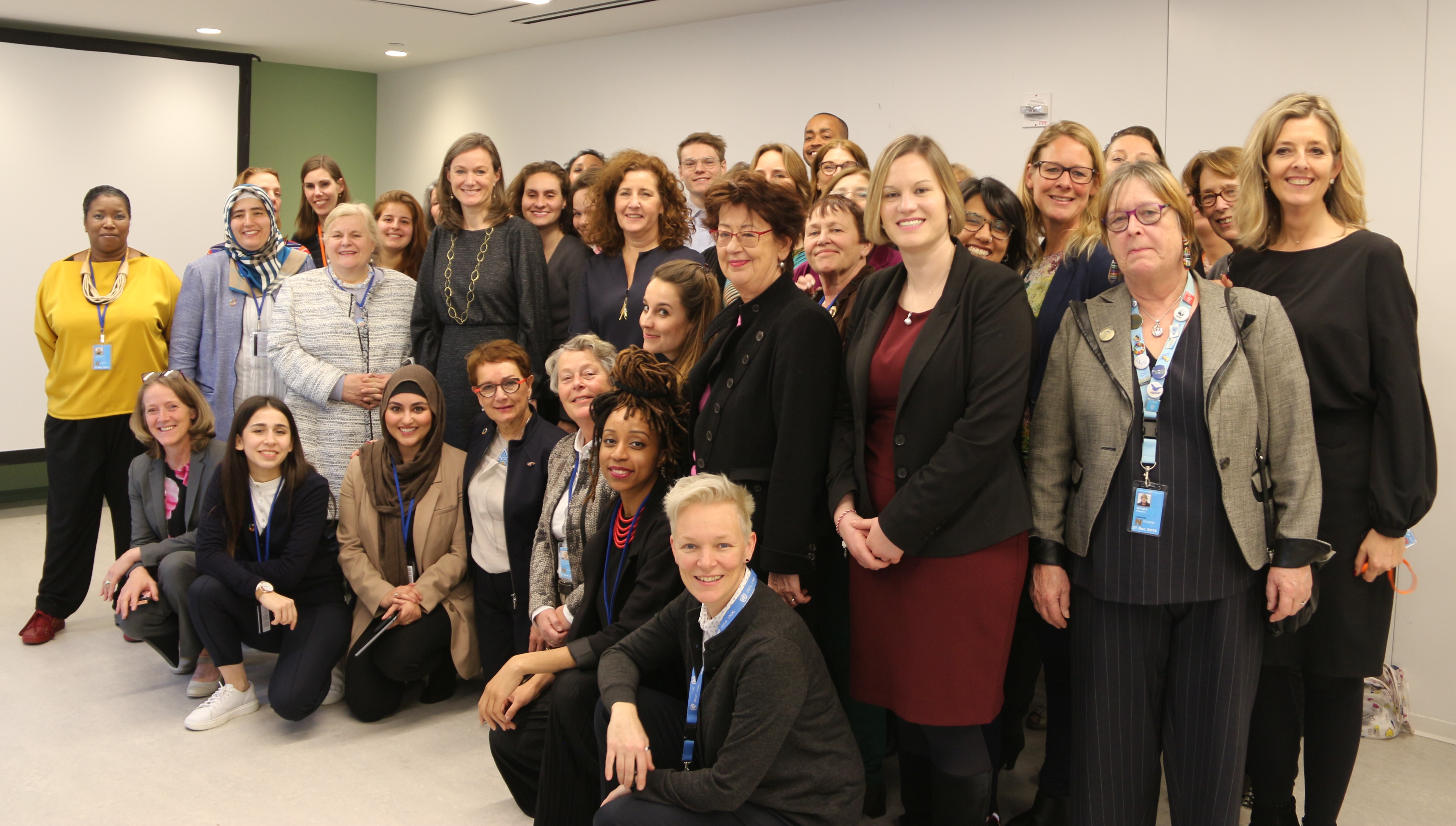
We also had a meeting with a large group of Dutch representatives including the Dutch minister of gender equality Ingrid van Engelshoven, she also gave a speech in the GA on behalf of the Kingdom of the Netherlands.
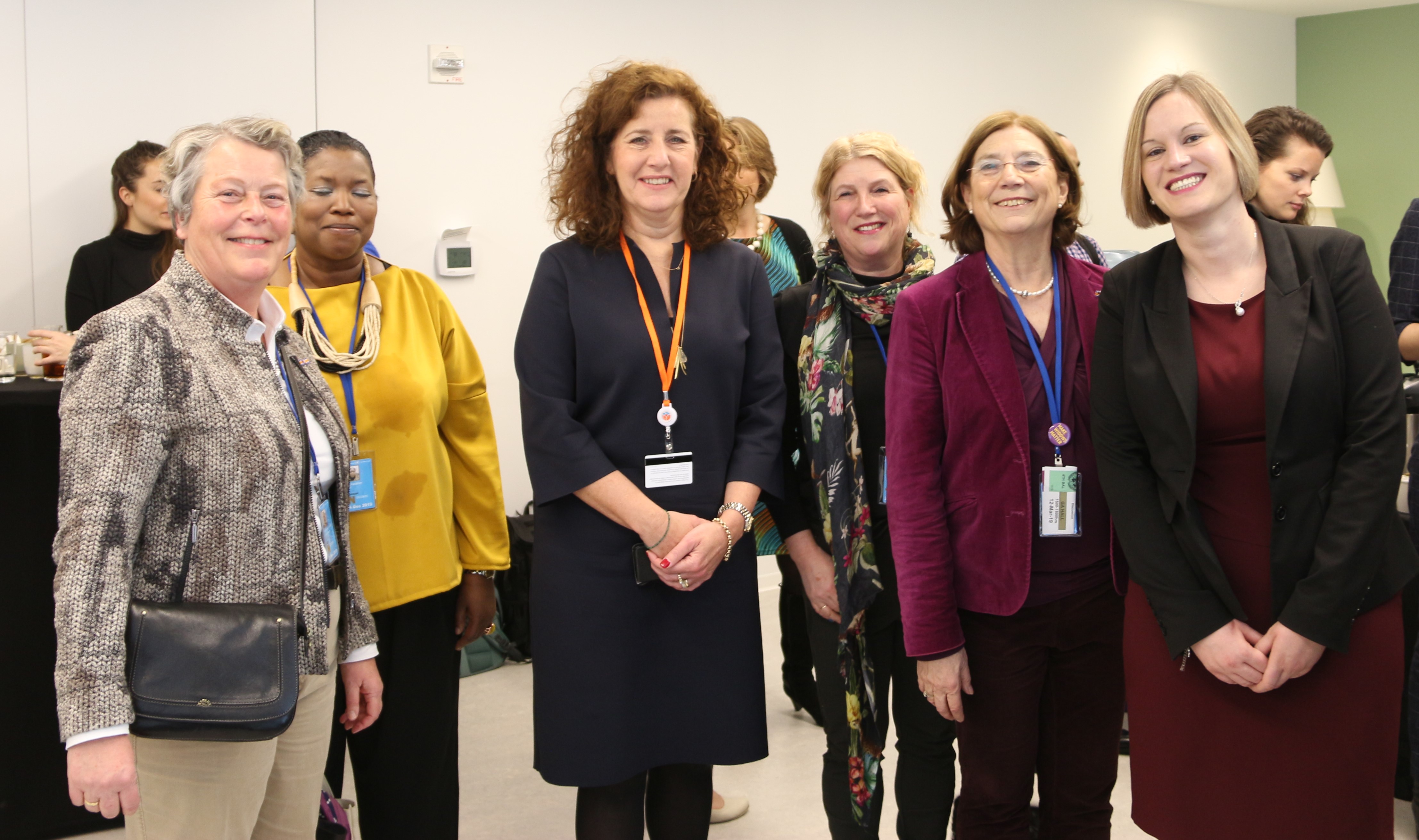
Another interesting event was about technology and education. Mrs. E.Focke-Bakker (Delft University) was one of the participators. She told us again what an enormous progress tech has given, but safety and security is essential for this development.
In universities we can see that students are easily connected and the young of today don’t always realise the importance of protection systems. They can study world wide with the MOOC’s (Massive open online courses) but good infrastructure for tech and affordable ICT is essential.

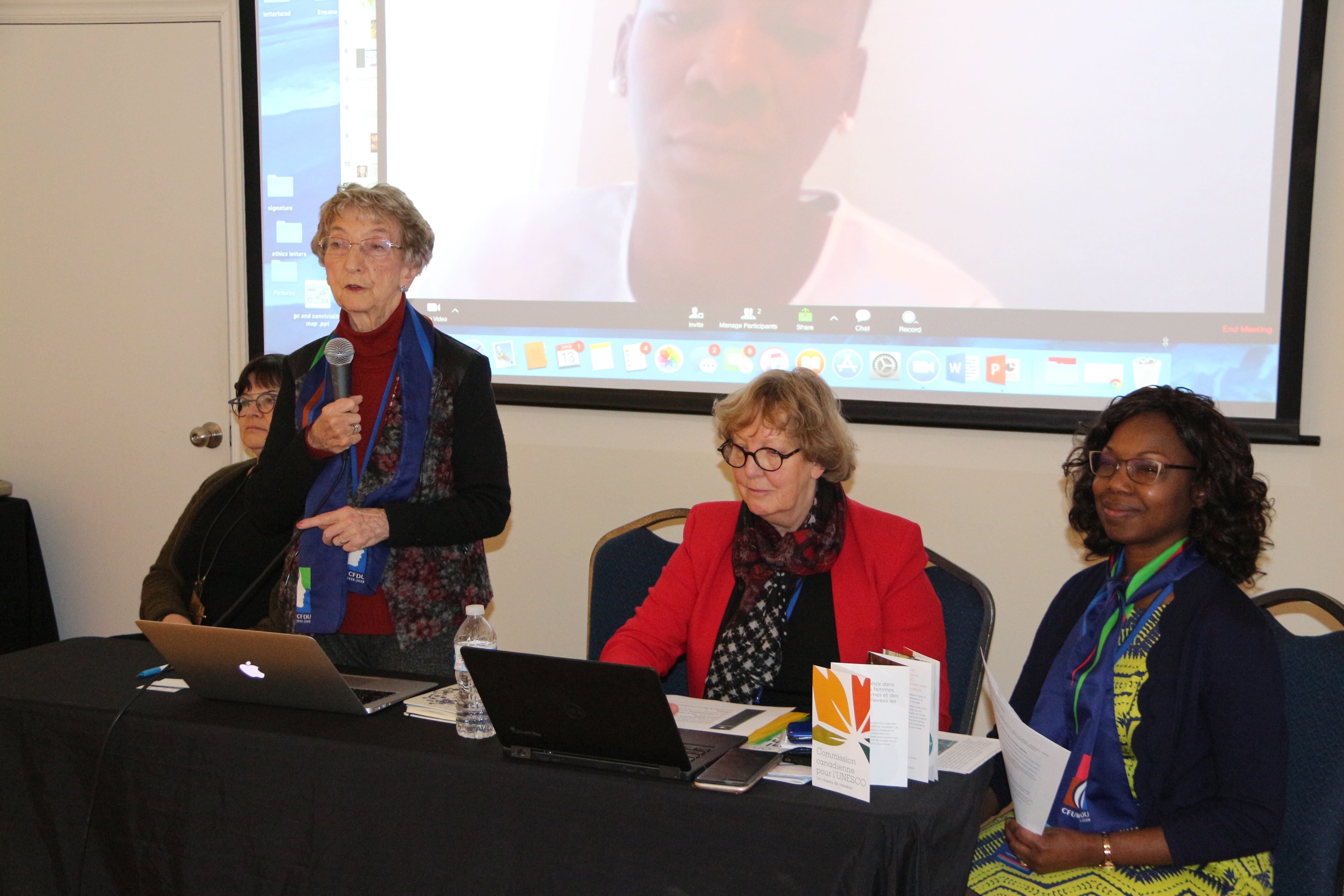
We must not forget that there are also people staying behind in this fast developing tech world. They need our special care. In the poorer countries the possibilities are enormous because of the tech development in education giving possibilities in their lives beyond school and they can study at home for their careers. Radio is also helpful if you can’t read or write.
Unfortunately we see cyberbullying and haressment, hate speeches and ID fraud as the new problems of the tech development. So there is a dark side to all the advantages.
Governments have to be aware and introduce new laws to protect users of the new ICT.
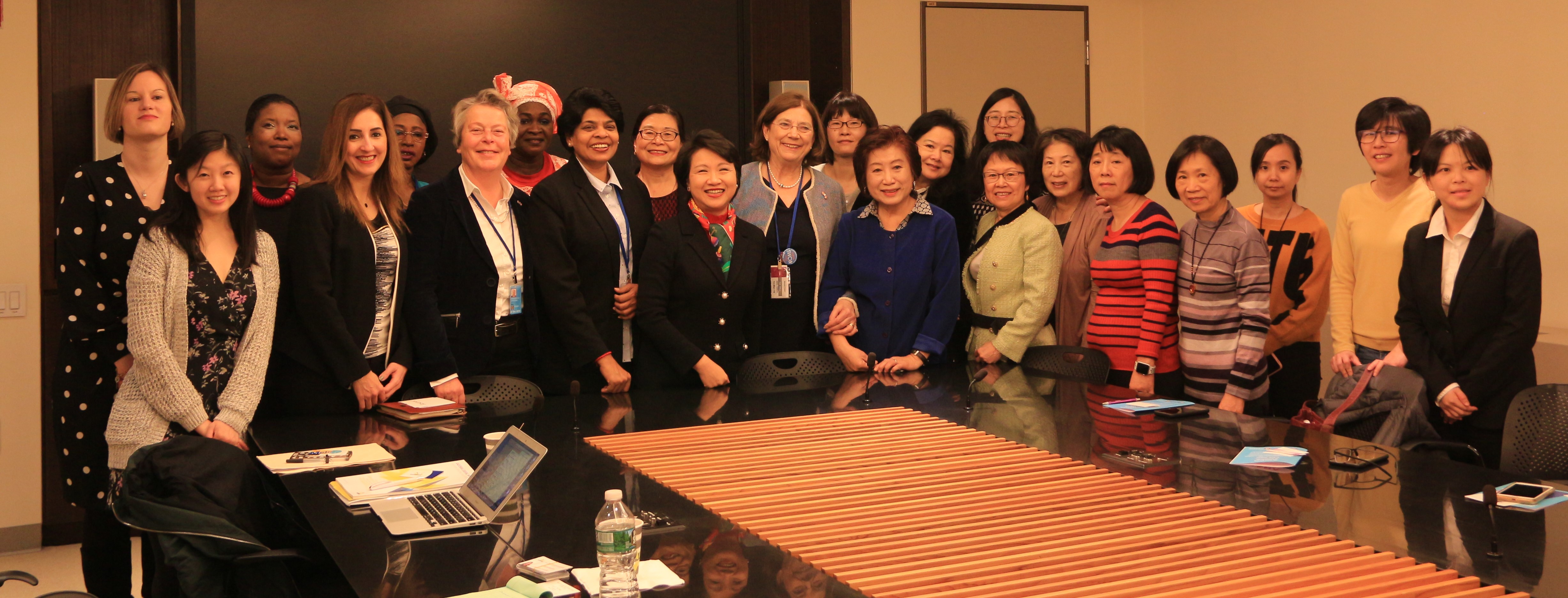
On the last day in our first week we arranged a very animated INLW meeting of INLW members with a group of ladies from Taiwan, Senegal and Mali. Many became a member of INLW.
We had our INLW side event with LI and Gender Women democracy on the Friday afternoon (seperate report).
The members of the INLW Board had a fruitfull meeting together with our new Board members and are looking forward to the next CSW march 2020.
At the closure of CSW63rd the agreed conclusions were accepted, a good result. You can download the report here.
Lysbeth van Valkenburg-Lely
Margaret de Vos van Steenwijk-Groeneveld
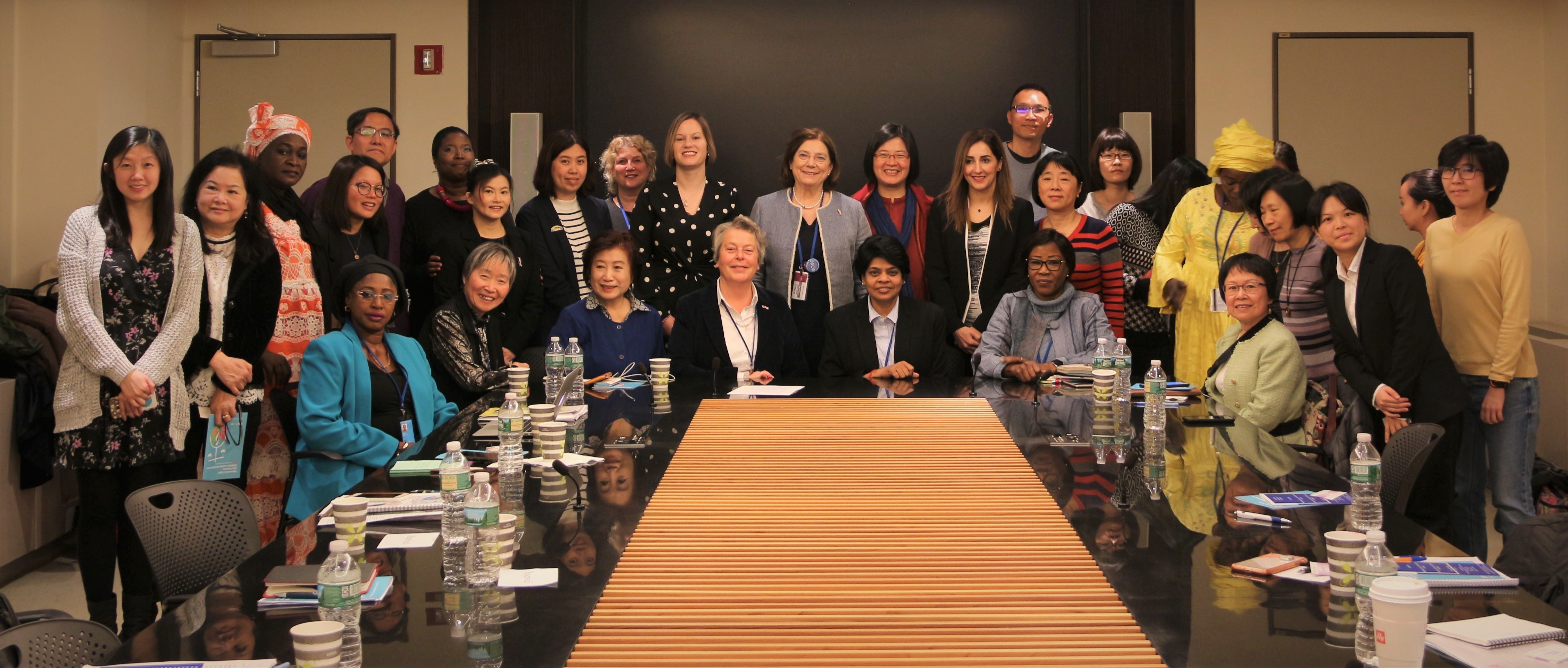
Download report
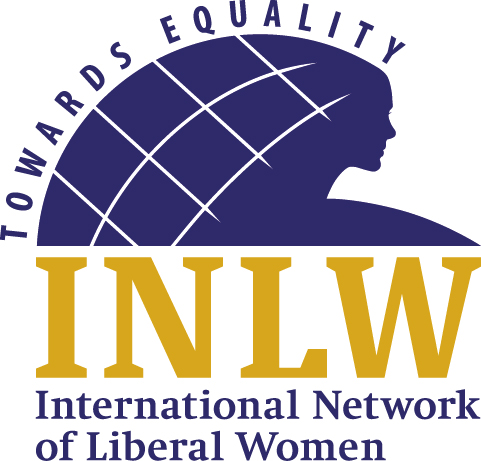
 Visit our Facebook page
Visit our Facebook page